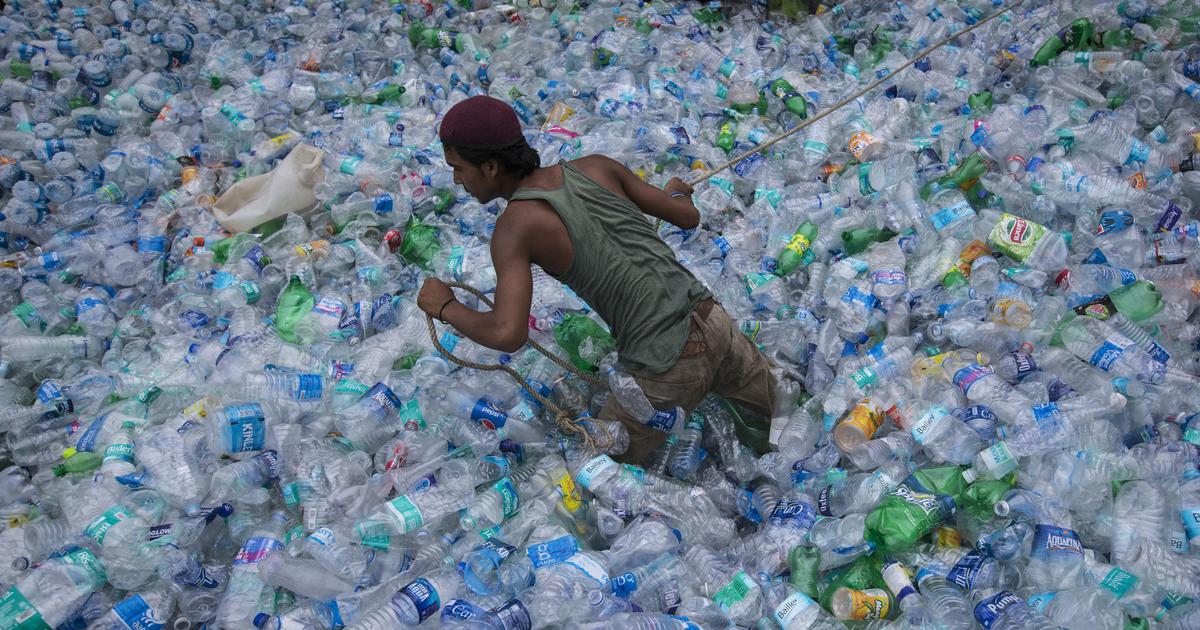India vows to end plastic calamity

Guidelines for Extended Producer Responsibility given legal force.
|| Elsie Gabriel
The enforcement is the most ambitious yet of the global actions to combat plastic pollution that are taking place around the world.Prime Minister Narendra Modi’s move aims to drastically stem the flow of plastic from the 1.3 billion people living in one of the fastest growing economy in the world.
India, which has 7,500km of coastline, and this announcement on a national marine litter action campaign and a programme to measure how much plastic enters India’s coastal waters sets the right tone. Additionally the nation will also pledge to make 100 national monuments litter-free.
While tax on single-use plastic bags in the UK has slashed their use, Canada is taking lead by enforcing the ban and Kenya banned single-use plastic bags early on in 2017 and have now prohibited visitors from taking single-use plastics such as water bottles and disposable plates into national parks, forests, beaches, and conservation areas.
Over 170 nations have pledged to “significantly reduce” use of plastic by 2030 according to World Economic Forum,and many have already started by proposing or imposing rules on certain single-use plastics.
Government officially announcing the Plastic Waste Management Amendment Rules, 2021, prohibiting identified single use plastic items by 2022 is a welcome move say environmentalists.
Thickness of plastic carry bags increased from 50 to 75 microns from 30th September, 2021 and to 120 microns with effect from the 31st December, 2022.
The Ministry of Environment, Forest and Climate Change, Government of India, has notified the Plastic Waste Management Amendment Rules, 2021, which prohibits identified single use plastic items which have low utility and high littering potential by 2022.
Pollution due to single use plastic items has become an important environmental challenge confronting all countries. India is committed to take action for mitigation of pollution caused by littered Single Use Plastics. In the 4th United Nations Environment Assembly held in 2019, India had piloted a resolution on addressing single-use plastic products pollution, recognizing the urgent need for the global community to focus on this very important issue. The adoption of this resolution at UNEA 4 was a significant step.
The manufacture, import, stocking, distribution, sale and use of following single-use plastic, including polystyrene and expanded polystyrene, commodities shall be prohibited with effect from the 1st July, 2022.
Details of plastic Items banned range from
ear buds with plastic sticks, plastic sticks for balloons, plastic flags, candy sticks, ice-cream sticks, polystyrene [Thermocol] for decoration;
plates, cups, glasses, cutlery such as forks, spoons, knives, straw, trays, wrapping or packing films around sweet boxes, invitation cards, and cigarette packets, plastic or PVC banners less than 100 micron, stirrers.
In order to stop littering due to light weight plastic carry bags, with effect from 30th September, 2021, the thickness of plastic carry bags has been increased from fifty microns to seventy five microns and to one hundred and twenty microns with effect from the 31st December, 2022. This will also allow reuse of plastic carry due to increase in thickness.
The plastic packaging waste, which is not covered under the phase out of identified single use plastic items, shall be collected and managed in an environmentally sustainable way through the Extended Producer Responsibility of the Producer, importer and Brand owner (PIBO), as per Plastic Waste Management Rules, 2016. For effective implementation of Extended Producer Responsibility the Guidelines for Extended Producer Responsibility being brought out have been given legal force through Plastic Waste Management Amendment Rules, 2021.
The waste management infrastructure in the States/UTs is being strengthened through the Swachh Bharat Mission. The following steps have also been taken to strengthen implementation of Plastic Waste Management Rules, 2016 and also to reduce the use of identified single use plastic items, the States/UTs have been requested to constitute a Special Task Force for elimination of single use plastics and effective implementation of Plastic Waste Management Rules, 2016. A National Level Taskforce has also been constituted by the Ministry for taking coordinated efforts to eliminate identified single use plastic items and effective implementation of Plastic Waste Management Rules, 2016.
The State /UT Governments and concerned Central Ministries/Departments have also been requested to develop a comprehensive action plan for elimination of single use plastics and effective implementation of Plastic Waste Management Rules, 2016, and its implementation in a time bound manner. Directions under Section 5 of Environment (Protection) Act, 1986, have been issued to all States/Union Territories inter alia for setting up for institutional mechanism for strengthening enforcement of Plastic Waste Management (PWM) Rules, 2016.




